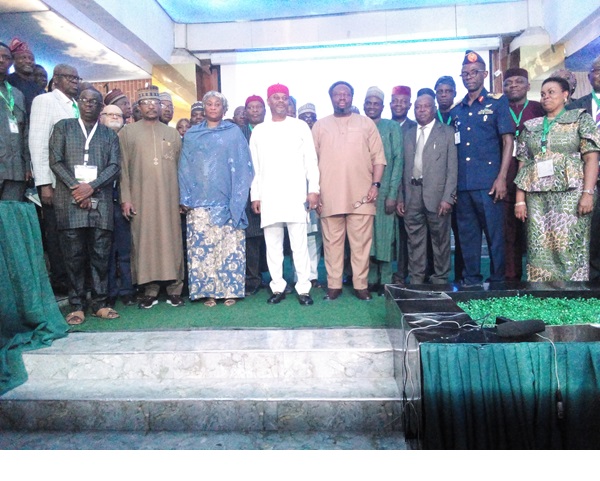
The Federal Ministry of Innovation, Science and Technology (FMIST) has inaugurated a two-day technical workshop for the National Consultative Committee on Competitiveness (NCCC).
This workshop is aimed at implementing the National Strategy for Competitiveness in Raw Materials and Products Development in Nigeria. Held at the Raw Materials Research and Development Council (RMRDC) in Abuja, the event is organised through the Strategy Implementation Task Unit (SITU), under the theme “Harnessing Local Resources for Diversifying Nigeria’s Economy and Enhancing Global Competitiveness Ranking.”
The Minister of FMIST, Chief Uche Nnaji highlighted the workshop’s significance in enhancing Nigeria’s economic growth and global competitiveness in raw materials and product development. He emphasised that while Nigeria possesses abundant raw materials, including solid minerals, metals and agro-raw materials, economic prosperity depends on developing these resources into high-quality products. Nnaji noted that the National Strategy aims to drive global competitiveness through investments in innovation, technology, R&D, infrastructure, data management, industrialisation, competitiveness advocacy, legal frameworks, institutional development and human capital development.
Nnaji outlined the strategy’s targets: reducing imports of raw materials and products that can be sourced locally by 11 per cent in the short term (0-5 years), 31 per cent in the medium term (5-10 years), and 49 per cent in the long term (over 10 years). He also detailed the expected benefits, including the creation of 4.4 million jobs, boosting local content in manufacturing to 50 per cent in the short term and 80% in the long term, increasing global acceptance of Made-in-Nigeria products, enhancing foreign exchange earnings, and fostering a demand-driven scientific industrial culture.
Nnaji stressed that global competitiveness is crucial for a thriving economy, as it involves producing goods and services that meet international standards while improving citizens’ long-term real income. Under his supervision, RMRDC maps the distribution, quality and quantity of strategic raw materials in solid minerals, metals, agriculture and energy. The data generated will be used for value chain development, market analysis, and reviewing government policies related to raw materials exploitation and utilisation.
To support MSMEs, RMRDC is revamping the establishment of resource-based industrial clusters across Nigeria. This initiative aims to promote the optimal use of local raw materials, reduce import dependency and lower production costs. The Technology Innovation Centre (TIC) at the Obasanjo Space Centre in Abuja is also a key part of this effort, providing a platform for technology adoption and transfer to agricultural and mineral raw materials processing.
The permanent secretary of the ministry, Mrs. Esuabana Asanye represented by the director of PRPA, Mohammed Salamatu emphasised SITU’s role in articulating, developing and garnering support for the national strategy. She encouraged stakeholders to form strategic coalitions to produce high-quality raw materials and products, ensuring Nigeria’s steady improvement on the global competitiveness index.
The director-general of RMRDC, Prof. Nnanyelugo Ike-Muonso recalled that the National Strategy for Competitiveness in Raw Materials and Products Development was approved by the Federal Executive Council on May 17, 2017. He stated that the strategy’s implementation would reduce raw materials and products imports, foster industry-research alliances, enhance adherence to standards and increase Nigeria’s global competitiveness.
The workshop includes plenary and sub-committee sessions, allowing stakeholders to deliberate on eleven thematic areas: competitiveness advocacy, institutional arrangements, policy framework, human resource development, infrastructure development, R&D, industry and business development, monitoring and evaluation, data management, finance and funding and commercialisation of R&D breakthroughs. Ike-Muonso urged the sub-committees to prioritise building a self-reliant and prosperous Nigeria with sustained competitiveness in raw materials and product development.
The project manager of SITU, Sir Henry Eteama expressed that the workshop aims to elevate Nigeria’s global competitiveness in raw materials, products, and services. He assured that the strategy would foster indigenous industrialisation and sustainable development through economic diversification. Eteama emphasised the importance of strategic alliances among academia, research institutions and the private sector to inspire R&D activities.

